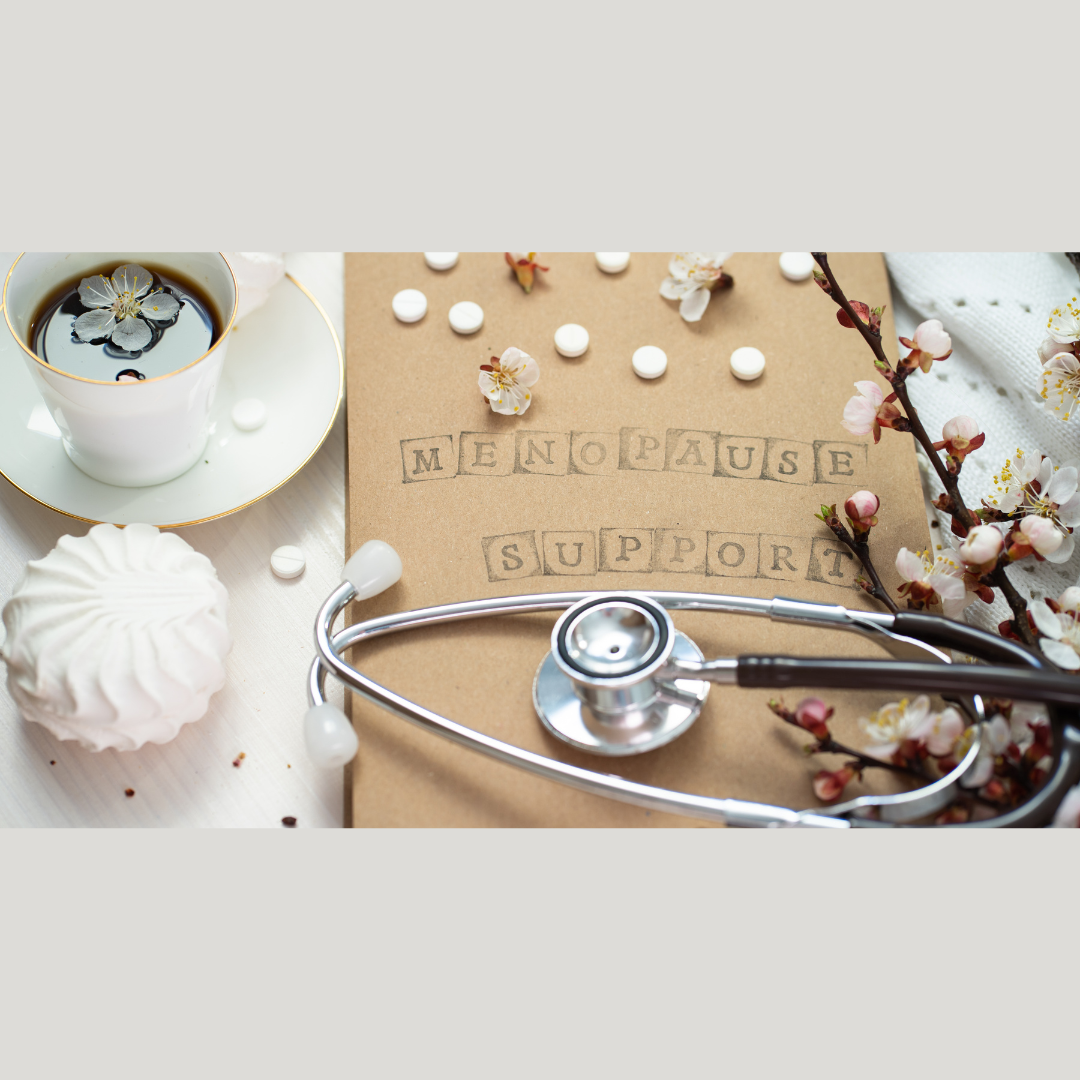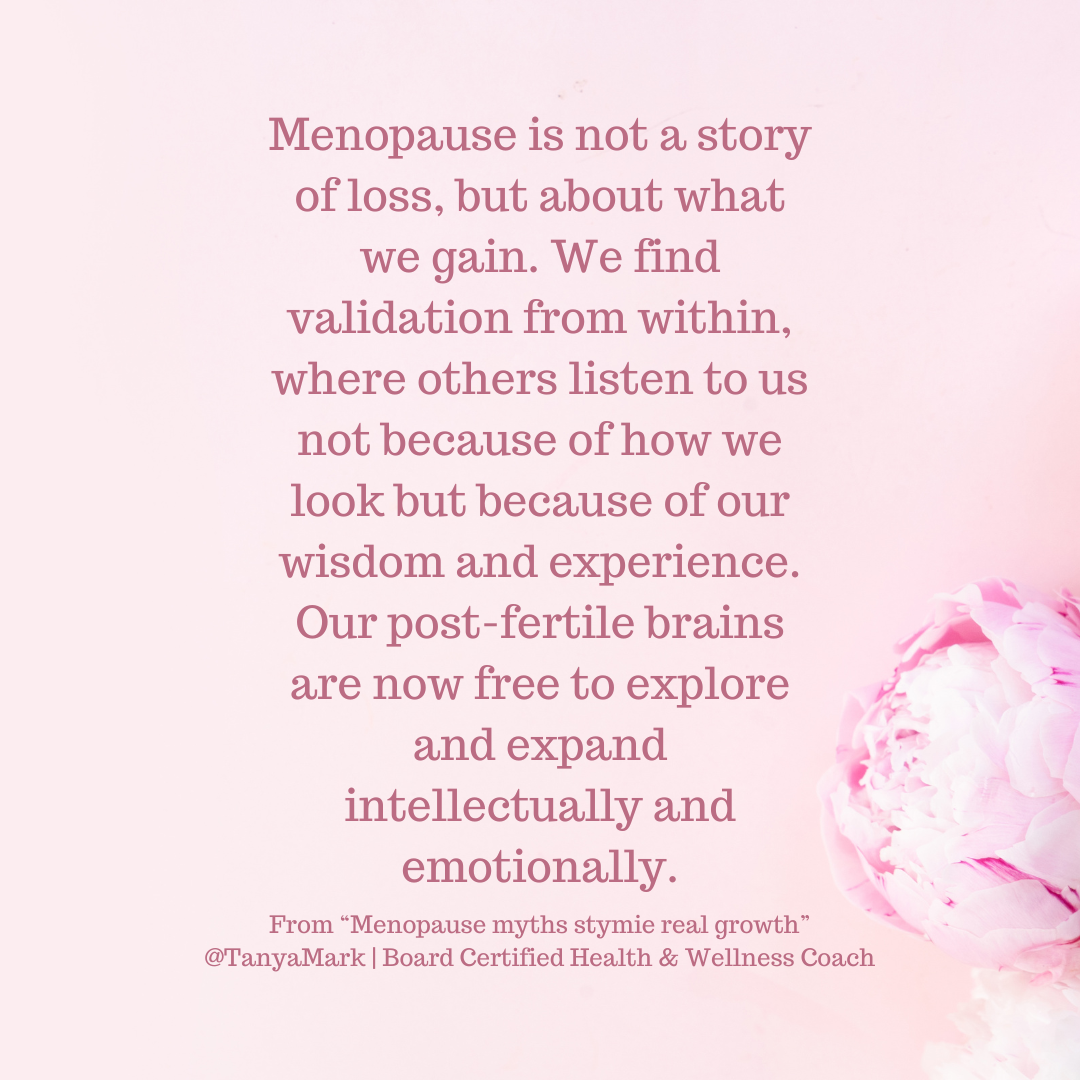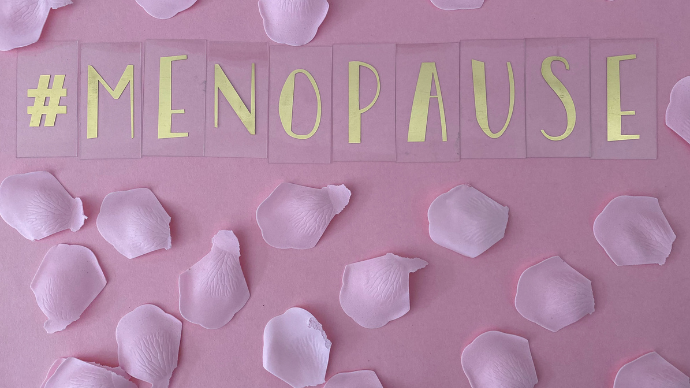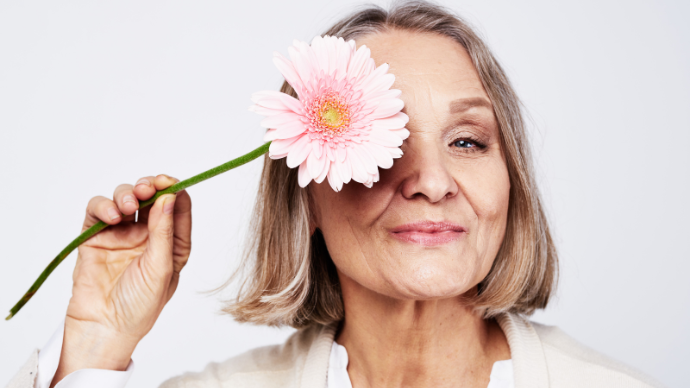Prompting 3,000 comments and ranking as one of the most read stories of 2023, the New York Times article Women Have Been Misled About Menopause by Susan Dominus made it clear that people going through menopause — about half the population, want to talk about it and want to be taken seriously.
Instead of the doom and gloom, invisibility narrative of aging, the sweaty menopause jokes and just suck it up and deal with it (it’s not really that bad) attitude, we deserve a comprehensive, anti-shame, pro-embodiment approach.
We want evidence-based facts, not information from a 32-year-old Insta-influencer. We want options to treat symptoms that may profoundly affect the quality of our lives. We want support with every facet of our wellbeing so that we emerge boldly from our reproductive years, sharing our wisdom with zest and, most importantly, so that we may thrive.
As a 55-year-old, post-menopausal woman, that’s the conversation I needed more than ten years ago when I started experiencing perimenopausal symptoms – hot flashes, night sweats that led to poor sleep and fatigue, anxiety, joint pain, forgetting what I was saying mid-sentence. Those are just some of 34 plus symptoms cited by the North American Menopause Society (NAMS). I didn’t know that those signs were signaling the beginning of my transition toward menopause and that for me, they’d last more than a decade.
Desperate to ease my discomfort I dove down the rabbit hole of Dr. Google and loads of misinformation and in particular, DIY hormone programs promising to fix my “broken” hormones. Let me spare you the time, money, energy, and years that I spent on those restrictive food plans. No, they did not relieve my symptoms. And honestly, I bet the stress from food restriction and under fueling my exercise aggravated my symptoms and perhaps contributed to my osteopenia diagnosis after a recent DEXA scan for bone density.
My menopause experience could have been much different.

In Dominus’s article, she shares the history of menopausal hormone therapy and how it used to be the most prescribed treatment in the United States. But in 2002, a single study, The Women’s Health Initiative, imperfect in its design, found links between hormone therapy and elevated health risks for women of all ages. Panic set in and prescriptions plummeted.
Hormone therapy carries risks, to be sure, as do many medications that people take to relieve serious discomfort, but dozens of studies since 2002 have provided reassurance that for many people the benefits of taking hormones outweigh the risks says Dominus.
That being said, hormones are not a cure-all. ‘Hormone therapy is not a fountain of youth and shouldn’t be used for that purpose,” says medical director of the NAMS, Dr. Stephanie Faubion.
Today, you have a range of options for symptom relief that may include hormone-therapy, non-hormonal drugs, and recommendations like cognitive behavior therapy for hot flashes, based on your health history and risk factors. Find a menopause informed healthcare provider to support you and screen for health conditions that you’re more vulnerable to such as cardiovascular disease, diabetes, dementia. Discuss medication options if needed and give your attention to modifiable behaviors to reduce your risk.
Expanding the menopause conversation
An empowered approach to menopause includes exploring all facets of your wellbeing. Learn strategies to regulate your emotions and manage stress such as journaling, calling a friend who’s a good listener or scheduling time with a mental health professional. Reap the many benefits of physical activity like supporting your heart and bone health. Nurture your relationships, social connections, spiritual wellbeing and prioritize joy and fun.

And let’s talk nutrition. There are many strategies to support menopausal health such as adding in fiber-filled whole grains to lower your cholesterol and blood sugar levels versus eliminating and restricting foods. Don’t get sidelined by diet culture nonsense that promises to fix your hormones and body.
Normalize menopause body changes
We deserve shame-free conversations about midlife body changes. As an exercise coach in my early perimenopausal years, I couldn’t imagine the menopausal reality of gaining weight and not having a flat stomach in the future. Even with no changes to your diet or exercise, it’s normal and natural to find yourself sizing up. Clothes weren’t designed to fit post menopause bodies where hormonal changes contribute to the re-distribution of body fat from our thighs and hips to our abdomens. Move beyond the scale and outward appearance. Approach your aging, changing body with this comprehensive pro-embodiment approach to your wellbeing.
We’re not less of ourselves on the other side of menopause, were more.
More powerful beyond menopause
“There’s a veritable legion of people post menopause who feel even more like themselves – even better, more at home in their bodies,” says author Heather Corinna in her book “What Fresh Hell Is This: Perimenopause, Menopause, Other Indignities, And You.”

We’re more direct. “The force of the impulse to speak out will feel like driving a Maserati for the first time – it takes a little while to get used to the power,” says Dr. Louann Brizendine, author of “The Upgrade: How the Female Brain Gets Stronger and Better in Midlife and Beyond.
Consider that 80% of Forbes’ 100 most powerful women of 2024 are 50 plus and the No.1 woman is 65 years old. She’s Ursula von der Leyen, President of the European Commission.
“Post-menopausal people express big feelings of freedom, self-acceptance, confidence, connection, and deeper intimacy, of being able to find a clarity about their wants and feelings and a greater ability to express them,” says Corinna. “Margaret Freaking Mead talked about the power of this post-menopausal zest.”
Empowered conversations about menopause honor that knowledge is power — and that we can be more powerful beyond menopause.
(This article was originally published in the March 27, 2024 edition of the Jackson Hole News and Guide).



